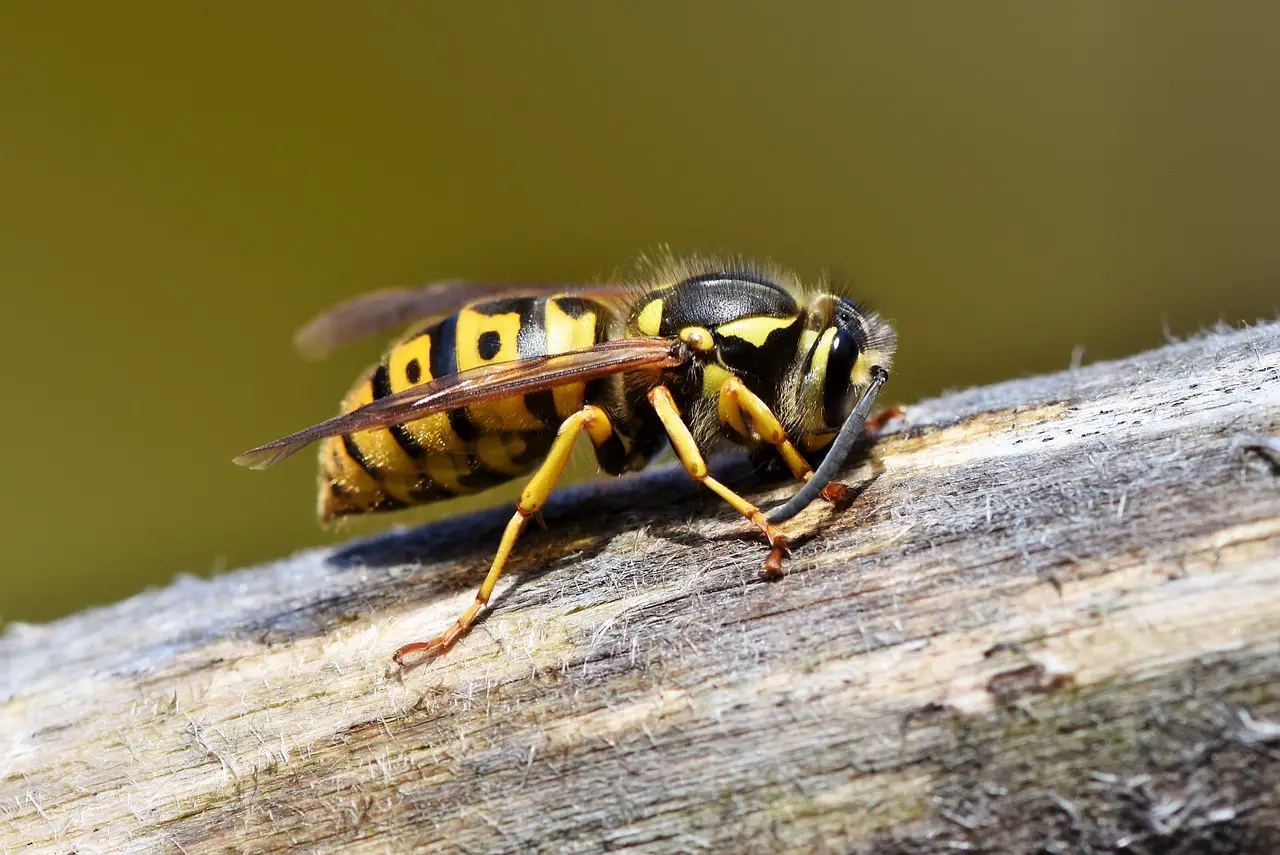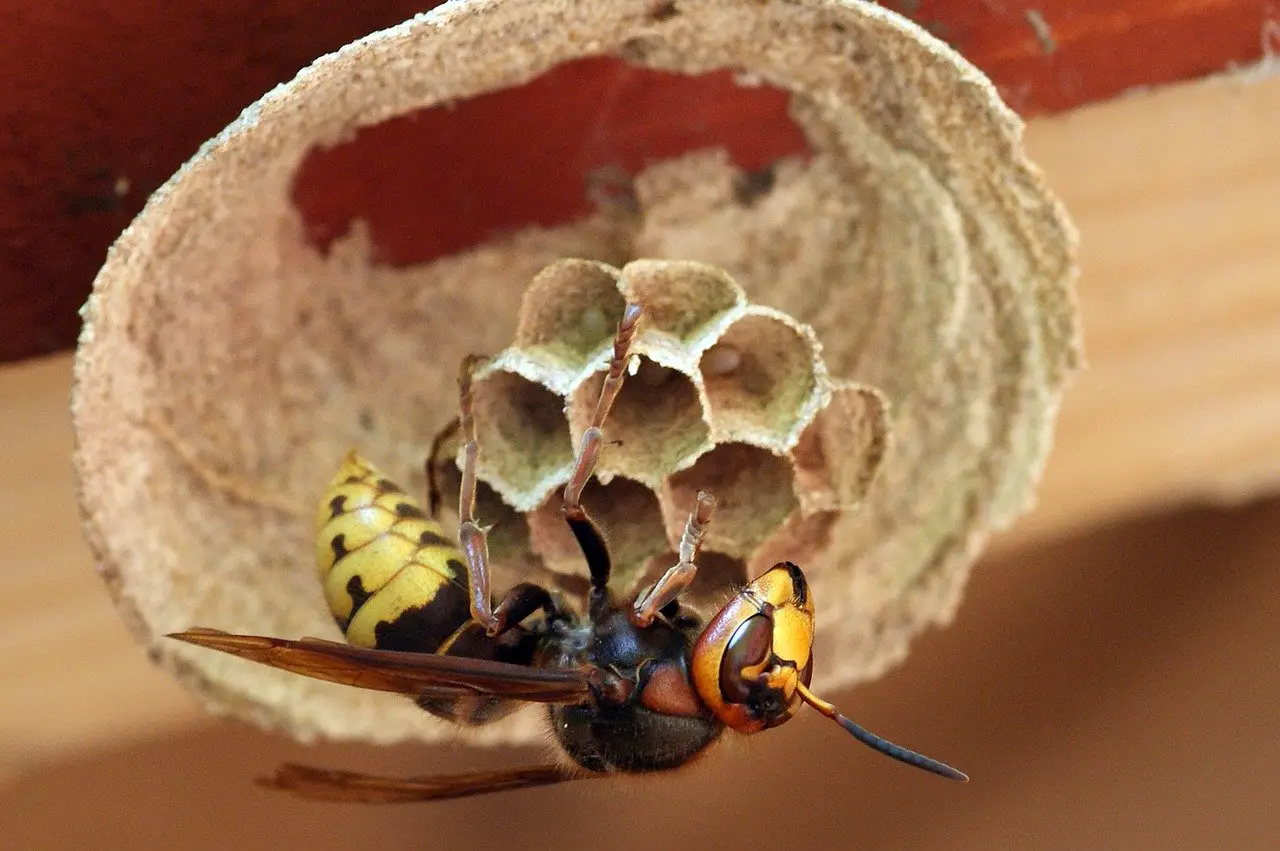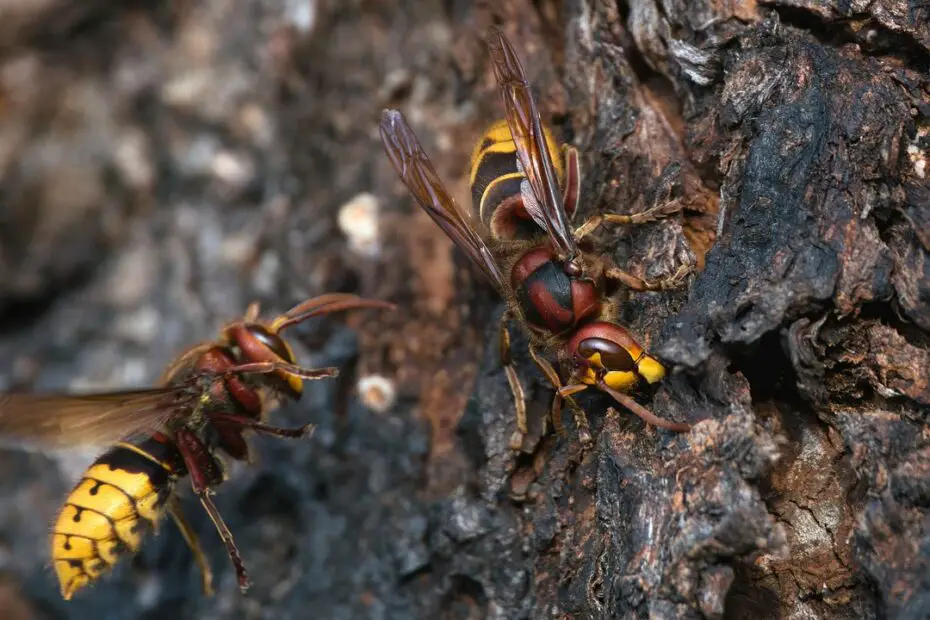Hornet vs Wasp: When it comes to stinging insects, hornets and wasps are often mistaken for each other. While they do share some similarities, there are distinct differences between the two. In this article, we will explore the world of hornets and wasps, understand their characteristics, and highlight the key differences that set them apart.
You may also want to read about flying spiders.
Understanding Hornets
Hornets are a type of wasp, but they have their own unique characteristics and behaviors.
Physical Characteristics
Hornets are typically larger than most wasp species. They have robust bodies, with yellow and black markings. Their heads feature large compound eyes, and they possess powerful mandibles. The most notable physical feature of hornets is their large, rounded abdomens.
Behavior and Habitat
Hornets are known for building aerial nests, usually high up in trees or on structures like buildings. They are social insects, living in colonies with a hierarchical structure. Hornets are less aggressive compared to some wasp species, but they can become defensive when their nest is threatened.
Exploring Wasps
Wasps are a diverse group of insects that come in various shapes, sizes, and colors.

Physical Characteristics
Wasps have slender bodies with distinct waistlines, giving them a more streamlined appearance compared to hornets. They come in different colors, ranging from yellow and black to metallic blue or green. Like hornets, wasps also have compound eyes and powerful mandibles.
Behavior and Habitat
Wasps can be solitary or social insects. Solitary wasps live and nest alone, while social wasps, such as yellow jackets, build paper nests and live in colonies. They are highly adaptable and can be found in various habitats, including gardens, forests, and urban areas.
Hornet vs Wasp: Key Differences
While hornets and wasps belong to the same insect family, there are several key differences that set them apart.
Appearance
One of the most noticeable differences between hornets and wasps is their size. Hornets are generally larger than most wasps. Additionally, hornets have larger heads and rounder abdomens compared to the slender waists of many wasp species.
Nesting Habits
Hornets build aerial nests, often in trees or elevated locations, using a papery substance they create by chewing wood. On the other hand, wasps build nests that can be either aerial or ground-based, using a combination of saliva and wood fibers.
Social Structure
Hornets are social insects and live in colonies with a hierarchical structure. They have queen hornets that lay eggs, worker hornets that gather food and maintain the nest, and male drones. Wasps can be either solitary or social, with social species forming colonies with queens, workers, and drones.

Sting and Defense Mechanisms
Hornets and wasps possess stingers and can deliver painful stings if provoked. However, hornets are generally considered to have more potent venom and their stings can be more painful. Hornets also have a higher likelihood of stinging repeatedly, while some wasp species have the ability to sting multiple times as well.
Hornet vs Wasp: Similarities
Despite their differences, hornets and wasps do share some similarities.
Both hornets and wasps are predatory insects that feed on a variety of insects and other arthropods. They play a crucial role in controlling pest populations in their respective habitats. Additionally, both hornets and wasps can be beneficial pollinators, aiding in the reproduction of flowering plants.
Hornet vs Wasp: Conclusion
In conclusion, while hornets and wasps are related and share some common traits, they have distinct characteristics that set them apart. Understanding the differences between hornets and wasps is essential for identification, effective pest management, and ensuring human safety in their presence. By appreciating the unique qualities of these insects, we can coexist with them and appreciate their ecological importance.
FAQs
- Are hornets more aggressive than wasps?
- While hornets can be defensive when their nests are threatened, their overall temperament varies among species. Some wasp species can be more aggressive than hornets in certain situations.
- Can hornets and wasps sting multiple times?
- Hornets and some wasp species have the ability to sting multiple times. However, they typically sting when provoked or feel threatened.
- Do hornets and wasps serve any beneficial purpose in ecosystems?
- Yes, both hornets and wasps play important roles in ecosystems. They control populations of other insects and contribute to pollination.
- Are hornet stings more dangerous than wasp stings?
- Hornet stings can be more painful and their venom may cause stronger reactions in some individuals. However, the severity of a sting’s reaction depends on factors such as the individual’s sensitivity and the location of the sting.
- How can I prevent hornets and wasps from nesting near my home?
- To prevent hornets and wasps from nesting near your home, ensure that any potential nesting sites, such as tree cavities or openings in structures, are sealed. Additionally, keeping outdoor garbage tightly sealed and removing food sources can help deter them.
